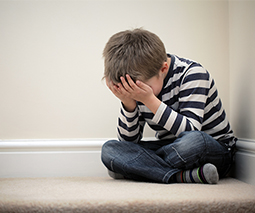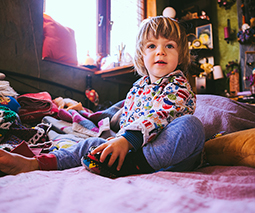Five parent-tested ways to help you deal with kids’ tantrums

Tantrums. Gee. They have the power to wring the cuteness out of even the most adorable toddler, and turn the most thick-skinned parent into a teary, wobbly mess.
The new normal
But the fact is that tantrums are a very, very normal part of early childhood development as small people deal with very big feelings before they really have all the tools to process and manage them.
That said, the normal-ness of tantrums doesn’t always feel that comforting when you’re trying to handle a particularly spicy one in the cereal aisle of your local supermarket.
Thankfully the good folk of Reddit’s Parenting forum are on the case. They gave excellent advice on what parents can do to take the sting out of these very normal episodes.
1. Take a breather
Taking a second to recalibrate can make all the difference.
“There were times I put my son in his crib not long after 18 months, just for a minute or two, to give him an opportunity to calm down, not punishment,” says Reddit mum christina0001.
This gives parents a chance to calm down a little too.
2. Empathy first
Leading with empathy can be key to short-circuiting this often explosive behaviour.
“It’s hard. Their brains are so undeveloped that they just aren’t capable of processing information or regulating behaviour the way that an adult’s or an older child’s brain might be,” Reddit’s vinesandbaywindows points out.
“There is something to those maternal instincts. Don’t give her what she wants, but why not scoop her up and speak really gently and sweetly? I know that’s not possible if it’s a violent tantrum, but a lot of tantrums cool with sweet, gentle empathy.”
3. Validate their feelings
Talking through the situation and respecting your child’s feelings can help roll things back and build trust.
“A big part of why little kids tantrum is because they think they’re misunderstood,” Reddit’s terrafirma9 said.
“They also don’t have the capacity to deal with the emotions they feel. Letting them know you hear and understand them will stave off a lot of tantrums. ‘You want to play bubbles! Bubbles would be fun! I agree! We need to eat first, then once that’s done let’s play.'”
“When the tantrums happen, just try to remember that they’re completely normal. I just adopted a validation strategy, ‘Oh wow, you are upset! I can see you’re really upset right now!’ Usually that helped get my daughter to the point where we could redirect her.”
4. Change of scene
Giving your child permission to have these big feelings and encouraging them to work through them can defuse a tantrum much more quickly.
“Be proactive, not reactive,” Reddit’s kelseyhart24 advised. “What causes her tantrums? Is it being denied a request, hunger, or tiredness?
“[Say] ‘I understand you’re (name emotion). I suggest calming down in your room. This is not a punishment but a place where you can feel (name emotion) safely. Punch, kick, scream into your pillow. When you’re quiet and happy, I invite you to come out for a hug to talk about your feelings.”
5. Work through it together
One mum of a small child explained the very gentle and compassionate way she helps her daughter through her tantrums.
“At first I rub her back and just sit beside her while she cries,” tercerero writes. “Then I get down on her level, hold her hands, tell her to look me in the eye and to follow what I do. Then I breathe deeply in and out while she focuses and starts doing the same.”
“I tell her I understand, she’s not alone, it’s hard, her feelings are big, but she can’t yell, kick, etc, and that we’ll figure out how to get through this. I remind her she’s frustrated but that acting out is not going to get her what she wants. If we’re at home, I get her a cool washcloth to put on her forehead.”
“It takes 60 seconds and she calms down. Then I assess – is she hungry, angry, lonely, tired? If I can address one of those, it brings down the likelihood of another tantrum. Later when things are calm, I review the tantrum with her and encourage her to express herself with words when she’s upset.”









